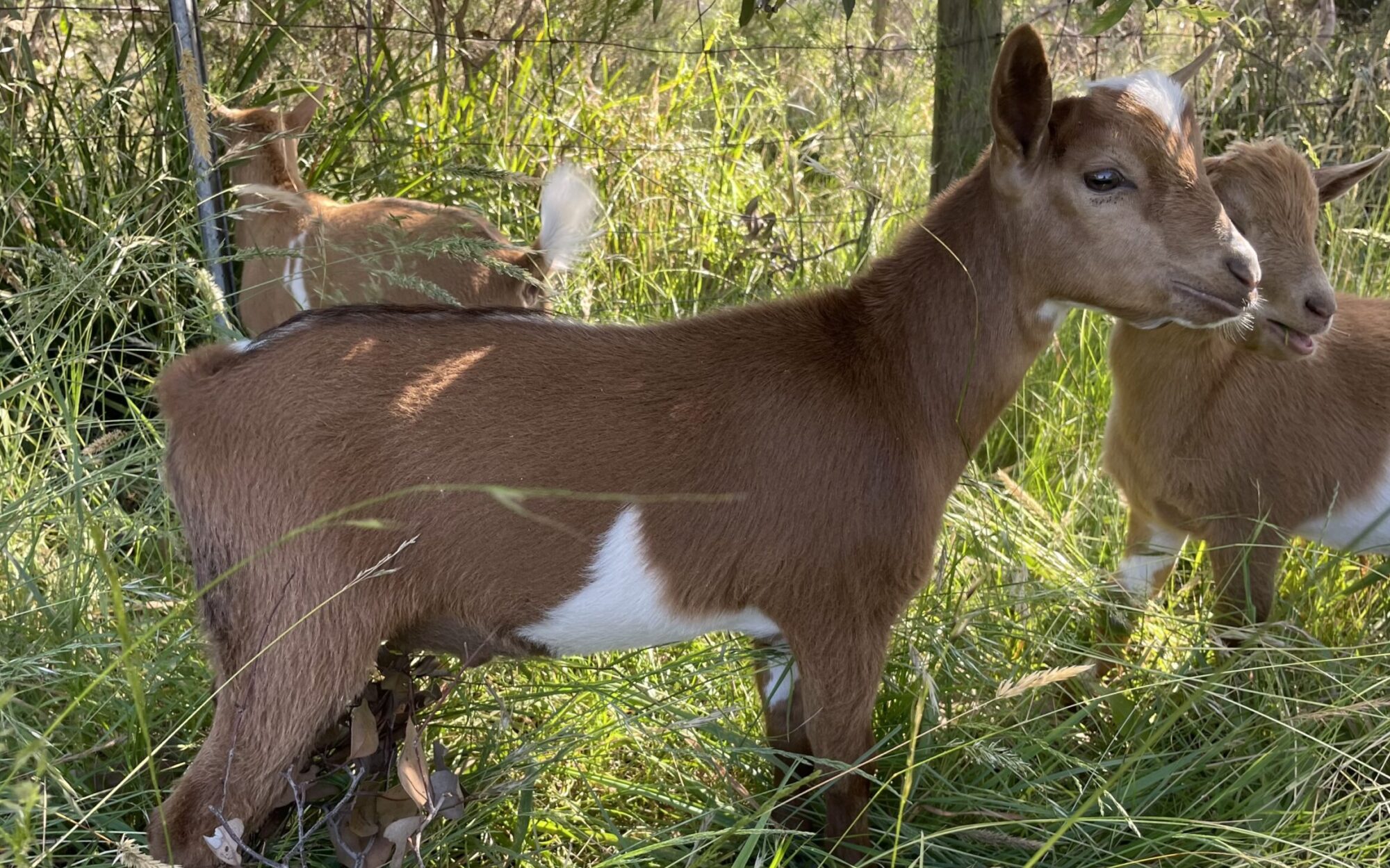Nigerian Dwarf goat milk qualities
The most important component of any milk, especially for making cheese, is its proportion of milk solids in the milk. The amount of butterfat and protein in the milk will determine cheese yield and cheese quality. While aspects of animal husbandry like fodder, housing and parasite load will influence the milk solid content to some degree, the most important determining factor for milk quality is found in the variations of the genetics involved in milk production. As might be expected, the differences in genetics between goat breeds account for differences in percentages of milk solids. The University of Florida IFS Extension website lists the average butterfat percentage in American goat breeds as following: Nubian: 4.61%, American La Mancha 3.8%, Alpines: 3.56%, Saanen: 3.52%, Toggenburg: 3.38%. No number was given for Nigerian Dwarf milk but Fiasco farm website listed the average Nigerian butterfat level at 5-6%. Of course there are individual variations with each goat and these average numbers change as the does progress through their lactation period. Nigerian Dwarf goats can reach 10% in late lactation.
In early and mid lactation, our goats were tested with the following results: Chloe: (f.f.) 6.39%, (s.f.) 7.47%; Sally: 7.18%, Lotte: 10.01%, Hope: 10.19%; Emily: 8.43%
Alpha S1-Casein, and Goat Genetics
Per the Veterinary Genetics Lab at University of California Davis, “Alpha s1 Casein is one of the four casein proteins found in goat’s milk and is the most important one for cheese making. The Alpha s1 Casein gene (CSN1S1) that produces the protein shows polymorphisms which affect the amount of protein and fat produced, with higher levels associated with the best cheese making.”
The concentration of αs1-casein [protein] in goat milk is an important variable and can be attributed to the αs1-casein genotype of the goat. In turn, αs1-casein concentrations have been positively correlated with the amount of total solids, total protein, and casein in goat milk and have been related to increases in cheese yield, coagulation times, and firmness of the curd (Ambrosoli et al., 1988; Pirisi et al., 1994; Clark and Sherbon, 2000).
There are 18 identified variants (alleles) of the αs1-casein gene identified to date:
The high-expressing, or strong, and desirable alleles for cheese making (A, B1, B2, B3, B4, B’, C, H, L, and M);
The intermediate alleles (E and I);
The low-expressing, or weak, and undesirable alleles for cheese making (F, D, and G);
the nonexpressing, or null, alleles (O1, O2, and N) produce no αs1-casein.
In terms of alleles by breed:
Toggenburg, Alpine, Saanen, and Oberhasli containing the most E and F alleles;
LaMancha, Nubian, and Nigerian Dwarf the fewest E and F alleles.
Our foundation goats have been tested for the variants of the Alpha s1 Casein gene and the results are:
Arnoth: AA; Appaloosa: AB; Iris: AB; Kate: AA; Fox:AA; Werewolf:AA
Chloe: AB; Florence: AA; Lotte: AA; Hope: AA; Sally: AA; Pan: AB;
All offspring of these goats have to have either the gene variant: AA, AB or BB
